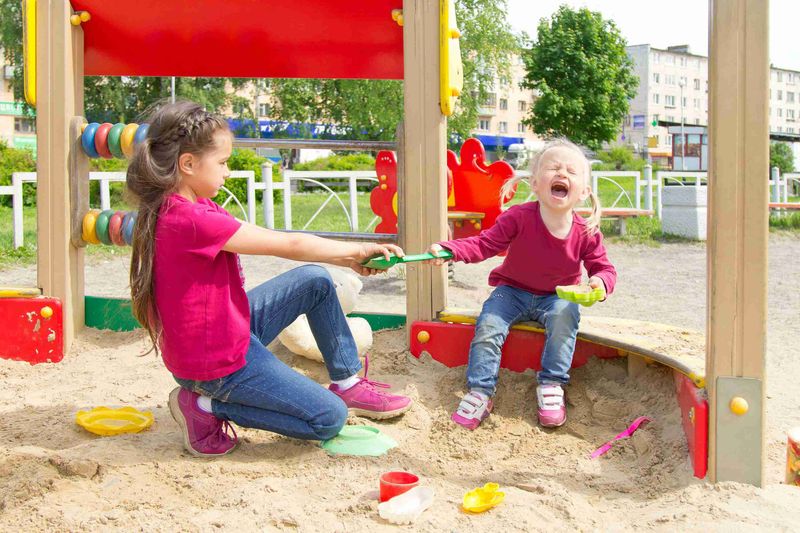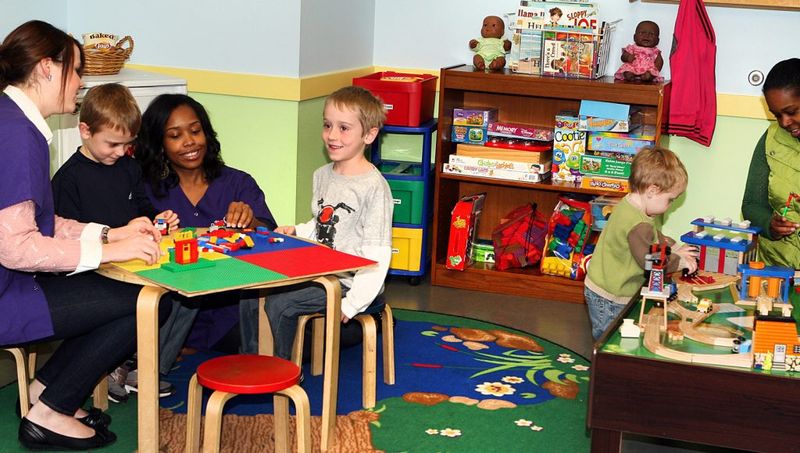Raising children is a joyful yet challenging journey. Sometimes, without realizing, we might exhibit behaviors that could lead our children to develop traits of entitlement. In this blog post, we will explore nine telltale signs your child might be spoiled, and offer suggestions on how to address these behaviors effectively. Understanding these signs can help you foster positive growth and ensure your child grows up with a balanced perspective on life.
1. Frequent Tantrums

Tantrums are normal for young children, but frequent outbursts might suggest deeper issues. Imagine a typical trip to the grocery store turning into a battleground, as your child demands candy at the checkout. Such public spectacles aren’t just embarrassing; they indicate an inability to handle ‘no’ gracefully.
Addressing this requires patience and consistency. Ignore the tantrum, acknowledging the child’s feelings but not the behavior. Over time, reinforce positive reactions to disappointment, like breathing exercises or verbal expressions.
Ultimately, it’s about teaching your child emotional regulation—a skill that will serve them throughout their life.
2. Lack of Gratitude

A thankless child can cause a sting that’s hard to ignore. Picture an 8-year-old surrounded by gifts, yet showing little enthusiasm or appreciation. Such lack of gratitude often signals a deeper sense of entitlement.
To foster gratitude, involve your child in gift-giving, emphasizing the joy in making others happy. Encourage writing thank-you notes and practicing daily gratitude reflections.
These small acts not only build appreciation but also empathy. A grateful heart leads to a generous spirit, and nurturing this quality early prevents entitlement from taking root.
3. Difficulty Sharing

Sharing can be a challenging concept for young minds. Picture a playground scene where two 5-year-olds are locked in a tug-of-war over a toy, each unwilling to yield.
When a child struggles with sharing, it’s often a sign of self-centeredness. Encourage sharing through structured playdates where turn-taking is emphasized. Praise generous behavior, making it appealing.
As they learn to share, children develop friendships and empathy. This skill is vital for social development, ensuring they grow into considerate adults capable of healthy relationships.
4. Excessive Demand for Attention

A child who constantly interrupts can be both endearing and exhausting. Imagine a lively 6-year-old who can’t wait their turn, constantly vying for adult attention.
Such behavior might suggest a need for validation or boundaries. Teaching patience and respect during conversations is crucial. Implementing ‘wait your turn’ games provides a fun way to practice patience.
Building these skills helps children understand social cues and the importance of listening, fostering communication skills essential for their future.
5. Resisting Responsibilities

A child dodging chores isn’t entirely unusual, yet persistent refusal points to entitlement. Picture a 12-year-old standing defiantly, arms crossed, as their parent requests simple tasks.
This resistance often stems from not valuing responsibilities. Create a routine where chores are part of daily life, linking them to positive outcomes, like a family reward system.
Such practices teach the importance of contributing to the household, developing a sense of responsibility and accountability crucial for adulthood.
6. Materialism Over Relationships

When a child values possessions over relationships, it can be an isolating existence. Picture a 10-year-old engrossed in gadgets, yet devoid of social interaction.
This tendency towards materialism can be countered by encouraging activities that prioritize relationships over things. Family outings, group sports, or community service can shift focus.
Building meaningful connections fosters emotional intelligence, teaching children that relationships provide lasting joy beyond material possessions.
7. Poor Sportsmanship

Losing gracefully is an essential skill. Picture a 9-year-old, arms flailing, unable to accept defeat after a simple board game.
Poor sportsmanship often indicates difficulty dealing with failure. Encourage games that emphasize fun over competition. Praise efforts, not just victories, to instill a healthy perspective on failure.
As children learn to lose with dignity, they build resilience—a trait vital for overcoming life’s challenges and striving for personal growth.
8. Manipulative Behavior

Manipulation isn’t uncommon in kids, but unchecked, it becomes problematic. Imagine an 11-year-old manipulating scenarios to get their way, using charm or guilt.
Such behavior signals a need for clearer boundaries. Consistent, firm parenting helps counteract manipulation, teaching that honesty yields better results.
By fostering open communication, children learn integrity and trustworthiness, crucial traits for building healthy, respectful relationships.
9. Self-Centeredness

A self-centered child often misses out on the joy of community. Picture a 10-year-old absorbed in their world, oblivious to a lively group activity.
This behavior can be gently redirected by promoting teamwork and empathy through group activities. Highlight the importance of considering others’ feelings and needs.
Developing an outward-focused mindset fosters compassion, transforming self-centered tendencies into care and concern for those around them.

